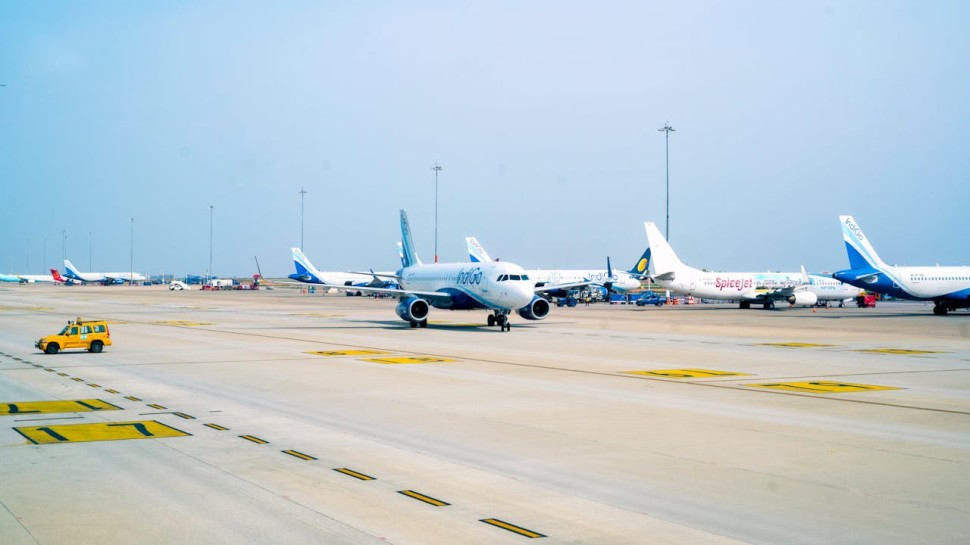A Coalition Sues Over Transparency Regulations
A group of major U.S. airlines is making headlines as it files suit against the U.S. Transportation Department, challenging a new mandate that requires more transparent disclosure of fees. The collective's legal action, which includes American Airlines, Delta Air Lines, United Airlines, JetBlue Airways, Hawaiian Airlines, and Alaska Airlines, emerged as a dispute focusing on consumer rights and airline operation practices.
The U.S. Transportation Department, under the current Biden administration, had recently issued final rules aimed at ensuring travelers are adequately informed about various service fees at the time of ticket purchase. Prompted by concerns over consumer experience with unexpected expenses, these regulations seek to safeguard against unanticipated costs, much to the discontent of the involved air carriers.

Clash Over Consumer Protection Measures
The heart of the issue lies in the interpretation of these protection measures. Airlines for America, the lobbying group at the forefront of the litigation alongside the airlines, issued a statement earlier this week expressing its opposition. According to the airlines' stance, the new rules imposed by the department purportedly complicate the consumer's experience and exceed the department's regulatory authority.
This lawsuit has been characterized as a significant clash between the air carriers and the current administration, shedding light on the tension between industry autonomy and federal oversight. Moreover, the airlines argue that the mandate, which labels the rule as arbitrary and capricious, constitutes an overreach beyond lawful jurisdiction.
Biden Administration's Firm Stance on Fee Transparency
In response, the U.S. Transportation Department maintains its position on the regulation, asserting that the new rules protect people from concealed 'junk fees.' The department's commitment to defending this legislation suggests a full-fledged battle over the new policy, which, according to the department, could lead to consumers paying less in fees when flying.
The department emphasizes that consumers annually overpay fees amounting to roughly $543 million, a revenue stream from unwitting travelers facing higher last-minute airport charges. Major airlines have been known to impose escalated fees for services like checked baggage, especially when passengers delay payment until flight time.
The Problem with Hidden Costs
The airlines must explicitly disclose fees related to baggage or flight changes directly via their online platforms rather than through hyperlinks. This step was drafted as a countermeasure against the perceived 'bait-and-switch tactics' some airlines use to disguise the actual cost of discounted flights. As the department describes, these tactics allow airlines to promote discounts off a base fare that excludes mandatory carrier-imposed fees.
However, the opposing airline group contends that their current disclosure practices already ensure consumers are fully aware of all potential fees before committing to a ticket purchase. The argument focuses on the notion that this regulatory step solves a non-existent problem and instead imposes unnecessary constraints on the industry.
Guaranteed Seats and Future Outlook
As per the new rule, airlines must reassure consumers regarding seat guarantees, emphasizing that purchasing additional seats is unnecessary for travel. These reinforced disclosures are contrasted by the airline's decision not to challenge another rule that requires automatic cash refunds for canceled flights if the passenger opts out of rebooking.
With passenger rights squarely at the center of the debate, President Joe Biden has strongly supported reforms that curb 'surprise fees' and streamline the refund process. According to the department, U.S. airlines collected nearly $6.8 billion from baggage fees in 2022 and an additional $5.5 billion in the first nine months of 2023, so the issue will likely remain at the forefront of consumer protection efforts.
The current legal battle will continue to unfold, reflecting the broader debate between consumer advocates and industry players regarding transparency and fair business practices within the air travel sector. U.S. airlines remain firm in their opposition, while the Transportation Department upholds its fee disclosure rules as a victory for travelers.




